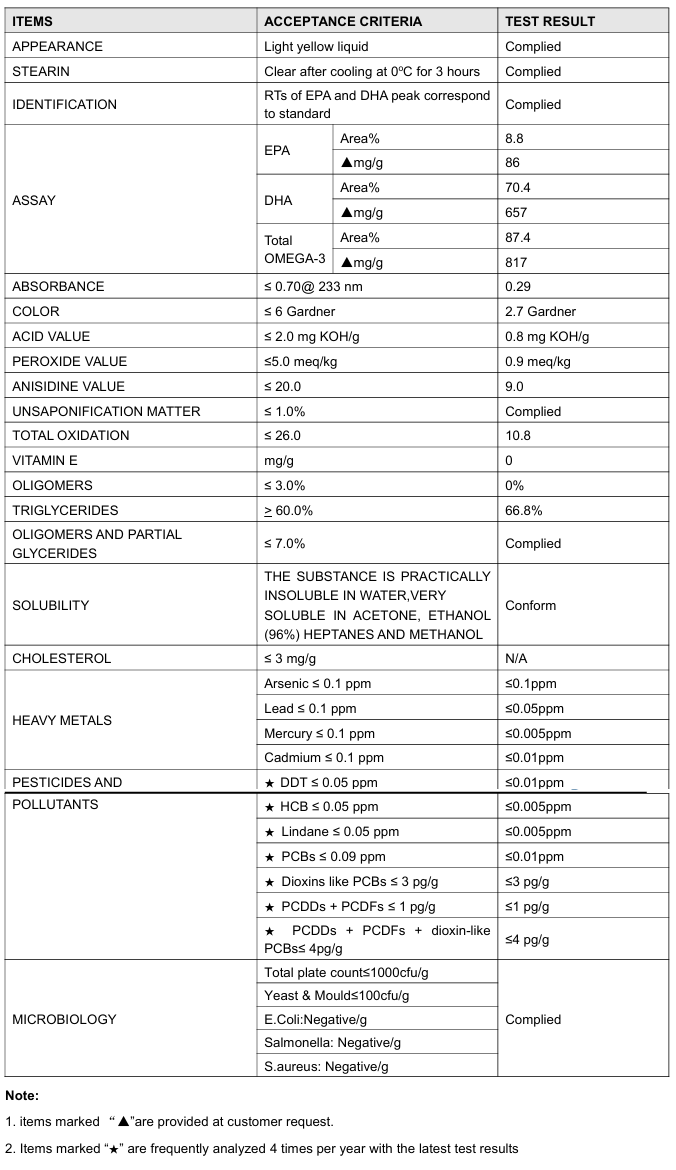|
Product Information |
|
Product name |
Omega-3 Fatty Acid Ω-3 Fatty Acid |

|
Usage |
Omega-3 fatty acids are polyunsaturated fats (or "healthy fats") you have to get from foods or supplements because your body doesn't make them. They're part of the support structure of every cell in your body; they give you energy; and they help keep your heart, lungs, blood vessels, and immune system working the way they should.
There are three main types of omega-3s:
(1) Eicosapentaenoic acid (EPA): found in fish
(2) Docosahexaenoic acid (DHA): also in fish
(3) Alpha-linolenic acid (ALA): in plant foods
Omega-3 Fatty Acids Benefits
Not only does your body need omega-3 fatty acids to function, it also gets tons of health benefits from them, including those that support your brain and heart.
1. Heart health
Some research shows that eating fish high in omega-3s may reduce your odds of cardiovascular disease by lowering your cholesterol and triglycerides (fats in your blood). But taking fish oil supplements doesn't seem to have the same benefits. In fact, one large study ended early because fish oil supplements actually raised participants' chances of having atrial fibrillation, an irregular heartbeat that can cause a stroke.
2. Autoimmune diseases
Omega-3s in fish and fish oil supplements may help with symptoms of several autoimmune disease like rheumatoid arthritis, lupus, and Crohn's disease. But we need more research to understand how they work and if omegas-3s from fish are better than those in supplements.
3. Depression
Several clinical trials have studied how well omega-3s work in helping people who aren't getting relief from antidepressants. A meta-analysis of different studies found that omega-3s can help relieve some symptoms of depression. But more research is needed because some of the studies had mixed results.
4. Brain development in infancy
You need to get plenty of omega-3s while you're pregnant for your growing baby. It's important for their brain development and future thinking and reasoning skills.
5. Asthma in children
A diet high in omega-3s lowers a child's chances of having symptoms of asthma from indoor pollutants. Researchers suggest kids are better protected when they eat more foods with omega-3s and less of those with omega-6 fatty acids, like soybean and corn oils.